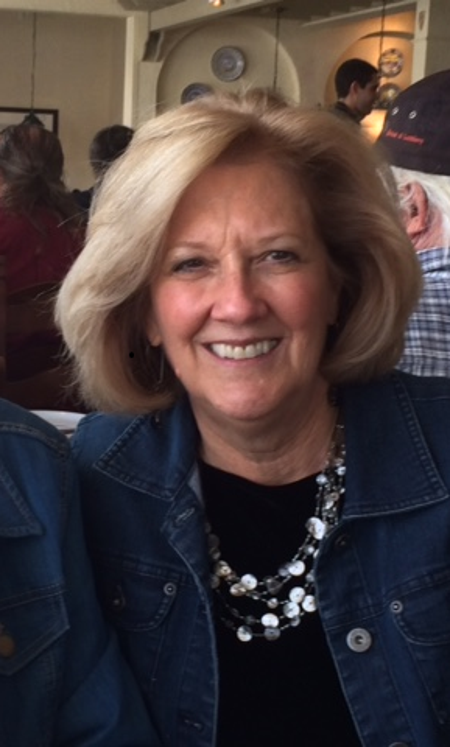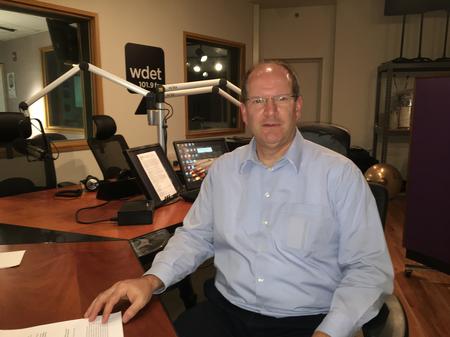Policy Meets the People: Introducing the Issue of Gerrymandering
In Michigan and other states, how voting districts are created may mean your vote matters less.

This week, WDET dives into the issue of redistricting in Michigan. Here’s an introduction to what you’ll find on air and online:
“What good is it really doing (to vote) when all these votes are steered toward getting the answer that they’re looking for in the voting booth?” says WDET listener Peter Mullin, of Bloomfield Hills.

Click on the audio link above to hear WDET’s Pat Batcheller and Sandra Svoboda discussing the coverage and the issue.

Voters casting their votes on any Election Day determine the winning and losing candidates. That’s Civics 101, and why following results on Election Night is supposed to be so exciting. It’s like a sport or a race: spectators watch to see who will win.
But increasingly, many political experts and researchers say, we know long before the polls close — or even open — what the results of some state and congressional races will be. That’s because how some voting districts are drawn heavily favors candidates from one party or another.
In fact, the argument goes, some races are not even remotely competitive because the voters in that district so strongly identify as belonging to one political party or another.
“Is that democracy? I mean is that part of our democratic system where all votes are equal? Or is this really becoming more weighted than is good for us?” says WDET Listener Toni Gibson, of Grosse Pointe Park. “It’s certainly a question that needs to be asked.”
So goes the issue of “gerrymandering,” the term for drawing districts, sometimes in highly irregular shapes, that make “safe” seats for one party and mean voters in the minority party matter less.
“I don’t feel that me personally and also everybody in the state is necessarily being represented in the way they’re supposed to be represented according to the Constitution, so that’s a big deal,” says WDET listener Steve Banicki, of Royal Oak. “I believe it’s a core issue regarding our freedoms and our Constitutions and how we elected the (people) who run for office.”

Voting districts are created every 10 years using – officially – the U.S. Census. But that process varies between states in how it’s carried out. In Michigan and many other places, it’s controlled by the legislatures, which means it’s an inherently political process.
“The big issue is that we have legislators making the rules for redistricting and legislators doing the redistricting so they are choosing their electors rather than the electors choosing their representatives,” says Eric Lupher, the president of the Citizens Research Council of Michigan, a nonpartisan group with offices in Livonia and Lansing.
In Michigan, the Voters Not Politicians group led a petition drive to place on the November ballot a proposal that would change Michigan’s Constitution and create an independent commission to draw districts. It faces a challenge in the Michigan Supreme Court from the group Citizens Protecting Michigan’s Constitution.
The Brennan Center for Justice at New York University has an excellent overview of the case, including links to key filings. Click HERE to see the web page..
WDET is examining gerrymandering as part of its “Policy Meets the People: MI Voice, MI Vote” series, which looks at key issues for the 2018 elections. We’ll talk to people who think the system should be fixed and people who think it’s not broken. We’ll have discussions about how gerrrymandering is an issue nationally and in particular metro Detroit neighborhoods. We’ll look at research and other reporting that have examined the effects of non-competitive voting districts.
How do we know you, the voters, care about these issues?
You’ve told us you do!
Earlier this year, WDET asked listeners and online audiences in a digital survey which issues they thought about the most.
According to the survey, gerrymandering was the No. 2 issue overall and the No. 2 issue that will determine how they will vote.
Respondents also said it was the No. 1 issue they consider the LEAST covered in the media – so WDET is aiming to improve that.
Here’s other WDET work on the gerrymandering issue:
Talk Show Programming
WATCH HERE: A live one-hour show with an in-studio audience and guests at 8 p.m., Tuesday, June 26. Tune in at 101.9 FM or online at WDET.org. Or join on WDET’s Facebook page where we’ll live stream the show. The show rebroadcasts at 2 p.m. Tuesday, July 3. Listen HERE for WDET 101.9 FM live online.
On DETROIT TODAY: Was Racism Involved in the Drawing of Michigan’s Congressional Districts?
Digital Specials
A Podcast Playlist – Become a Gerrymandering Expert Just By Listening
NPR’s Hidden Brain: Gerrymandering and You
News Coverage
MichMash: Here’s How You Can Influence The Drawing of District Lines in Michigan
Gerrymandering: Why It’s a Technology Issue [TRANSCRIPT]
Redistricting 101: Your District, Your Politicians, But Does Your Vote Matter?
Ohio Offers Its Own Solution to Gerrymandering [MAPS + GRAPHS]
Who Should Draw Michigan’s Political Maps? Voters May Decide [PHOTOS + MAP]
Voters Not Politicians: The Pros [TRANSCRIPT]
Voters Not Politicians: The Cons [TRANSCRIPT]
It’s a Ship….No, it’s a House…Wait, it’s a Congressional District?
Does Michigan Have a District that Looks Like Homer Simpson? You Be the Judge.
Facebook Fun
